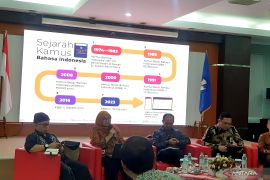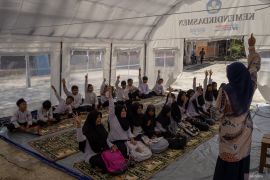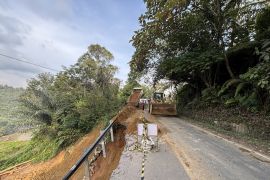Al-Khour, who walked two kilometers to Sabra neighborhood in southwest Gaza city to fill up water, said "water in my house is very salty and undrinkable, so I have to walk this long distance to get drinkable water to my wife and three children."
Al-Khour said besides shortage of water, the family also suffered from an increasing hours of blackouts and electricity shortage.
Like Al-Khour, most of the residents in Gaza city had to buy water from mini-water trucks that supply the residents with drinkable desalinated water.
"Before the war on Gaza, I used to buy around 1,000 liters of drinkable water from the water car, but during the days of the Israeli air strikes on the Gaza Strip, water cars are not coming anymore to our neighborhood, so I have to get drinkable water for my family by myself," said al-Khour.
Israel has been carrying out airstrikes on Gaza Strip round the clock, where not only houses were destroyed, but also large part of the infrastructure, water and sewage systems all over the coastal enclave were badly damaged, according to officials in Gaza.
"Israel has been striking on the Gaza Strip day and night and destroyed the infrastructure. I believe that if these strikes keep going on for another week or two, a big humanitarian crisis could break out anytime," said al-Khour, right after he filled up the water and kept walking.
While al-Khour was filling the water, some children gathered around him and pointed at several Israeli reconnaissance drones that were hovering over the sky. Meanwhile, a huge explosion was heard in a nearby neighborhood.
The Gaza waters authorities announced in a press statement two days ago that it decided to stop all its activities in the Gaza Strip after its crews in the field were targeted by the Israeli war jets rockets. The statement accused Israel of targeting the water and municipal staff on purpose.
It said that one of the water authority workers was killed and another one was injured in two separate air strikes on central and southern Gaza Strip.
Monzer Shublaq, director of Waters Authorities in Gaza, said that stopping the activities of the workers in the fields of water, sewage and electricity was endangering the health and the environment in the Gaza Strip. He warned of humanitarian crisis in Gaza if the Israeli offensive goes on.
"Many wells, sewage pumping stations and the lines of water supplies were damaged by Israeli war jets missiles," Shublaq said, adding "technicians and workers are not able to reach those areas, which are close to the borders between Gaza and Israel."
Ahmed Hamouda, a resident of the town of Beit Lahia in northern Gaza Strip, said the sewage pool in west of the town is about to flood soon because pumps were damaged during the war.(*)
Editor: Heru Purwanto
Copyright © ANTARA 2014











